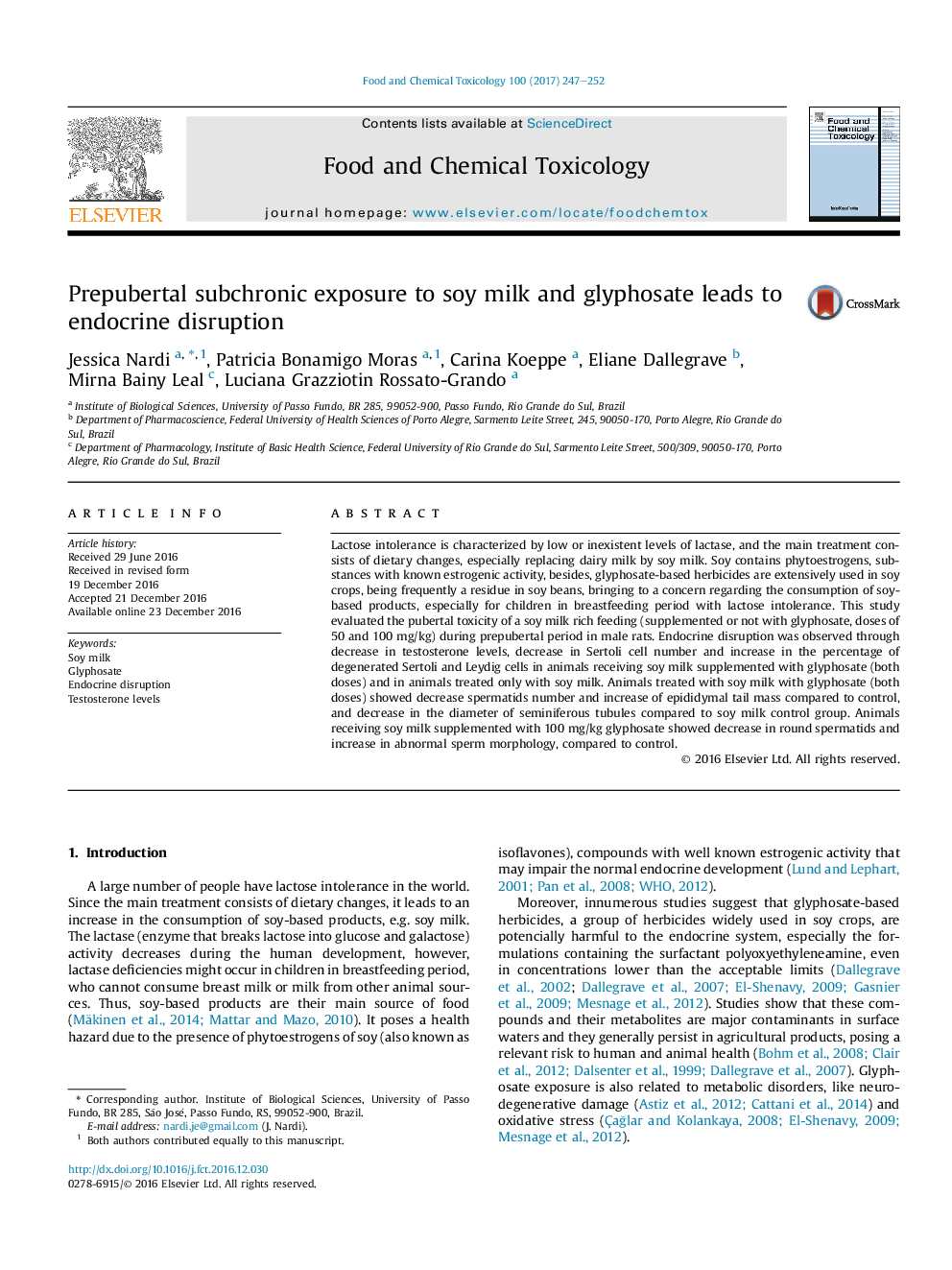| کد مقاله | کد نشریه | سال انتشار | مقاله انگلیسی | نسخه تمام متن |
|---|---|---|---|---|
| 5560292 | 1561745 | 2017 | 6 صفحه PDF | دانلود رایگان |
- Soy milk elicits endocrine-disrupting effects, by decreasing serum testosterone levels.
- Soy milk also decreased Sertoli cell number and increased the percentage of degenerated Sertoli and Leydig cells.
- The endocrine-disrupting effects are intensified by exposure to soy milk and glyphosate residues.
Lactose intolerance is characterized by low or inexistent levels of lactase, and the main treatment consists of dietary changes, especially replacing dairy milk by soy milk. Soy contains phytoestrogens, substances with known estrogenic activity, besides, glyphosate-based herbicides are extensively used in soy crops, being frequently a residue in soy beans, bringing to a concern regarding the consumption of soy-based products, especially for children in breastfeeding period with lactose intolerance. This study evaluated the pubertal toxicity of a soy milk rich feeding (supplemented or not with glyphosate, doses of 50 and 100Â mg/kg) during prepubertal period in male rats. Endocrine disruption was observed through decrease in testosterone levels, decrease in Sertoli cell number and increase in the percentage of degenerated Sertoli and Leydig cells in animals receiving soy milk supplemented with glyphosate (both doses) and in animals treated only with soy milk. Animals treated with soy milk with glyphosate (both doses) showed decrease spermatids number and increase of epididymal tail mass compared to control, and decrease in the diameter of seminiferous tubules compared to soy milk control group. Animals receiving soy milk supplemented with 100Â mg/kg glyphosate showed decrease in round spermatids and increase in abnormal sperm morphology, compared to control.
Journal: Food and Chemical Toxicology - Volume 100, February 2017, Pages 247-252
